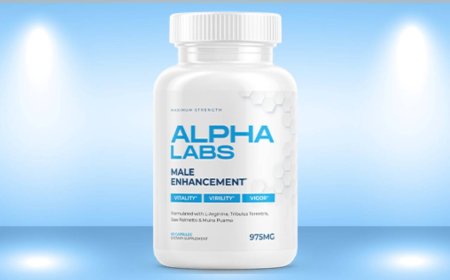How WooCommerce Multistep Product Configurators Can Improve SEO Performance
One of the tools gaining popularity is the WooCommerce product configurator, particularly the multistep variation.

In the competitive landscape of eCommerce, providing a seamless and interactive shopping experience is essential. One of the tools gaining popularity is the WooCommerce product configurator, particularly the multistep variation. Beyond enhancing user experience, these configurators can significantly boost your store's SEO performance. By enabling personalized product options and interactive design, they increase engagement, improve site structure, and generate unique, search-engine-friendly content.
In this blog, we’ll explore how a multistep product configurator for WooCommerce not only benefits your customers but also plays a pivotal role in improving your store’s visibility on search engines.
What is a WooCommerce Multistep Product Configurator?
A multistep product configurator for WooCommerce allows users to customize products through a step-by-step process. Instead of being overwhelmed with all options at once, customers are guided through logically grouped steps, such as selecting sizes, colors, materials, or additional features. This ensures a more organized and user-friendly approach to product customization.
How Multistep Product Configurators Enhance SEO Performance
1. Improved User Experience (UX)
Search engines prioritize websites that deliver a superior user experience. By simplifying complex customization processes, a WooCommerce product configurator reduces bounce rates and increases time spent on the site—two critical factors in SEO rankings.
- Reduced Bounce Rates: Customers are more likely to stay and complete their customization journey if the process is easy to follow.
- Increased Dwell Time: The interactive nature of configurators encourages users to engage with your site for longer periods.
2. Rich Content Creation
Search engines love unique content, and configurators generate plenty of it. Each customization step can include detailed descriptions, instructional videos, or FAQs that add depth to your product pages.
- Searchable Product Descriptions: Configurator options such as “matte finish” or “eco-friendly material” can be indexed by search engines.
- Long-Tail Keywords: A multistep product configurator for WooCommerce often creates URL variations for different customizations, targeting long-tail keywords and expanding your SEO reach.
3. Dynamic Meta Tags and Schema Markup
Modern product configurators often integrate with SEO tools, enabling dynamic generation of meta tags. For instance, if a customer selects “custom wooden table with polished oak finish,” your configurator can dynamically update the meta title and description to reflect that choice, improving relevance for search engines.
Additionally, schema markup for configurators helps search engines understand the customizable features of your products, increasing the likelihood of rich results appearing in search queries.
4. Mobile Optimization
Most WooCommerce product configurators are built with responsive design, ensuring seamless usability on mobile devices. Mobile-first indexing by Google makes this a vital factor for SEO performance.
- Fast Loading Times: Lightweight, optimized configurators ensure that your mobile pages load quickly, boosting rankings.
- Enhanced Navigation: Step-by-step processes are particularly effective on smaller screens, offering a smoother experience for mobile users.
5. Increased Backlinks and Social Shares
Interactive features like product configurators naturally attract backlinks and social shares. Bloggers, influencers, and customers often link to or share unique customization tools, driving traffic and improving your domain authority.
- Shareable Features: Customers can share their customized designs on social media, generating organic backlinks.
- PR Opportunities: Innovative configurators often receive coverage in industry blogs or news outlets, further boosting SEO performance.
Best Practices for SEO-Optimized WooCommerce Product Configurators
1. Keyword Integration
Ensure your configurator includes relevant keywords, such as "custom [product name]" or "[product name] configurator." Use the WooCommerce product configurator to create SEO-friendly URLs, titles, and alt tags for images.
2. Content-Rich Configurator Pages
Add detailed descriptions for each customization step. For example, when offering color options, include a short paragraph about why a particular color might be ideal for specific use cases.
3. Analytics and Conversion Tracking
Integrate tools like Google Analytics to monitor user behavior within the configurator. Use this data to optimize steps with high drop-off rates, further improving SEO by reducing bounce rates.
4. Responsive Design
Optimize your configurator for all devices. Ensure that buttons, text, and images adjust fluidly across different screen sizes for the best user experience.
5. Fast Loading Speeds
Minimize loading times by compressing images, using a content delivery network (CDN), and caching pages. Slow configurators can deter users and harm SEO rankings.
Case Study: Real-World Impact of Multistep Product Configurators
Company Example: CustomPrints Co.
After integrating a multistep product configurator for WooCommerce, CustomPrints Co. saw the following results:
- 40% Increase in Organic Traffic: Dynamic URLs and unique content generated from the configurator attracted new visitors.
- 20% Reduction in Bounce Rate: Customers engaged more with the step-by-step customization process.
- 15% More Backlinks: The innovative configurator was featured in blogs, driving traffic and improving SEO rankings.
Future of WooCommerce Product Configurators in SEO
With advancements in AI and machine learning, the next generation of configurators will become even more powerful. AI-driven options can predict user preferences, creating ultra-personalized experiences while generating unique SEO content.
- Voice Search Integration: Future configurators may allow users to customize products using voice commands, capturing the growing market of voice search queries.
- Augmented Reality (AR): Combining AR with configurators will enable users to visualize their customizations in real time, improving engagement and SEO metrics.
Conclusion
A WooCommerce product configurator is more than just a tool for customization—it’s a powerful asset for improving your store’s SEO performance. By enhancing user experience, generating unique content, and increasing engagement, a multistep product configurator for WooCommerce can help your store climb the search engine rankings while delighting your customers.
To stay ahead in the competitive eCommerce landscape, consider integrating a WooCommerce configurator today and optimize it for SEO to unlock its full potential.
What's Your Reaction?





















